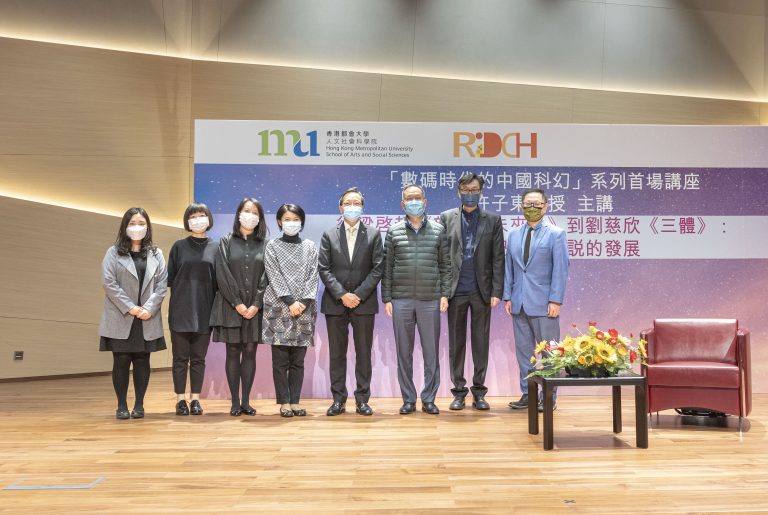In the seminar, Professor Xu Zidong explored the development of Chinese novels in the 20th century, from Liang Qichao’s sci-fi utopia The Future of New China (1902) to Liu Cixin’s bestseller The Three Body Problem (2006).
Professor Xu first introduced the four major traditional genres of Chinese fiction. The first was the Courtesan (Qinglou) novel. Lu Xun considered Flower and Moon Trace 花月痕 commendable, The Nine-Tailed Turtle 九尾龜 contemptible, and The Sing-song Girls of Shanghai 海上花列傳 close to reality. This tradition matured in the early 20th century and continued through writers like Yu Dafu and Zhang Xianliang, transitioning from domesticating the courtesan to prostituting the household. The second was the chivalric detective novel. It was influenced by Western detective novels like Sherlock Holmes during the late Qing Dynasty and declined after the May Fourth Movement. It was later revived by authors like Jin Yong, who emphasized the spirit of Water Margin and reflected official-citizen conflicts to meet the mass aesthetic demands. The third was the grotesque condemnation novel. Late Qing works focused on criticizing the dark society and appealed for saving the nation. The fourth was science fiction. Its development in the 20th century was relatively weak, with notable works including Liang Qichao's The Future of the New China 新中國未來記 and contemporary works like The Three-Body Problem 三體. These four genres can be summarized as facing the challenge of “self-cultivating, family-ordering, state-governing, and world-pacifying.”
Professor Xu then analysed the four great late Qing dynasty novels, all belonging to the social condemnation genre, with the core theme of “Scholars witnessing Officials in the oppression of Commoners.” Officialdom Unmasked 官場現形記 adopted indiscriminate criticism, attributing official corruption to contemporary flaws. Bizarre Happenings Eyewitnessed Over Two Decades 二十年目睹之怪現狀 provided a more subjective, individual perspective. A Flower in a Sinful Sea 孽海花 didn’t entirely condemn officials and advocated for intellectuals to govern the country. And The Travels of Laocan 老殘遊記 prominently embodied the theme of “Scholars witnessing Officials in the oppression of Commoners.” Late Qing novels concentrated on criticizing the dark society and appealed for saving the nation.
In addition to the distinctiveness of vernacular Chinese, political concerns, and realism which already existed in late Qing literature, the real contribution during the May Fourth period is anti-tradition. Various types of intellectuals emerged in Lu Xun's works, including the madmen, the remorseful, the frustrated, and the complicit. He also depicted the complexity of the common people as both the victim and the victimizer. Officials were portrayed as implicit villains and not explicitly visible in stories. Lu Xun attempted to save China by reshaping the national character.
The literature during the Yan'an period focused on officials in the division of benevolentness and maliciousness. Later, the narrative style of “good officials doing bad things” emerged, portrayed as well-intentioned but resulted wrongly. Writers like Mo Yan adopted a magical realist style, particularly in his work Life and Death Are Wearing Me Out 生死疲勞, which Professor Xu considered to have the qualities of science fiction. White Deer Plain 白鹿原 was seen as representative of inheriting the tradition of “Three Kingdoms Romance.”
The contemporary science fiction novel The Three-Body Problem attempted to break out of the Chinese story's framework, however also projected a Chinese aspirational heroism of world-saving. The work contained the universal value of “Dark Forest” and also triggered a collective unconsciousness among Chinese readers.
In conclusion, Professor Xu elucidated the developmental context of 20th-century Chinese fiction through the analysis of representative works from different periods and how authors shaped typical characters. From the late Qing Dynasty to the May Fourth Movement and up to the present day, Chinese fiction has undergone a complex evolution, presenting a rich tapestry. The seminar broadened the perspective for understanding Chinese literature and provided a unique angle of insight.













